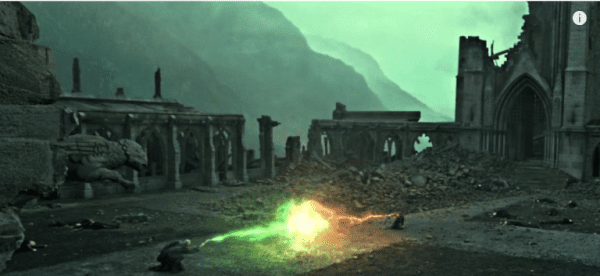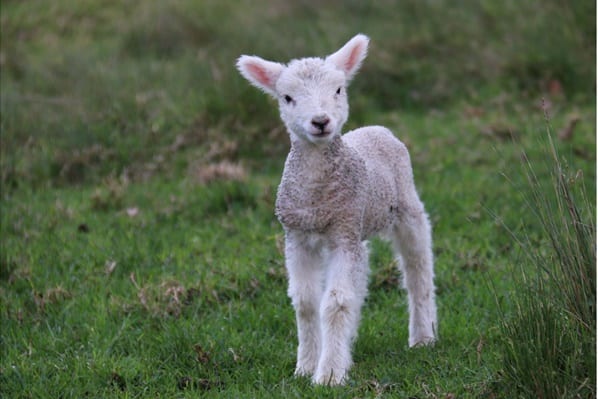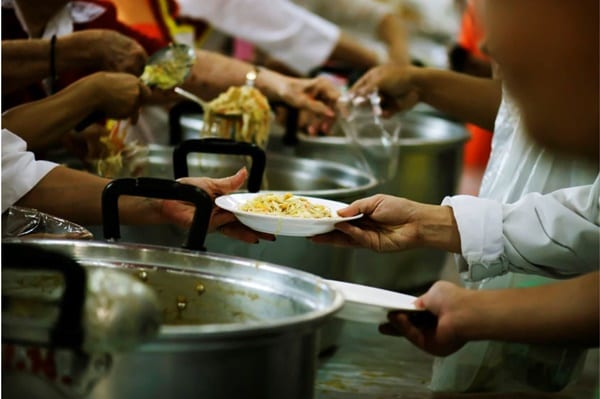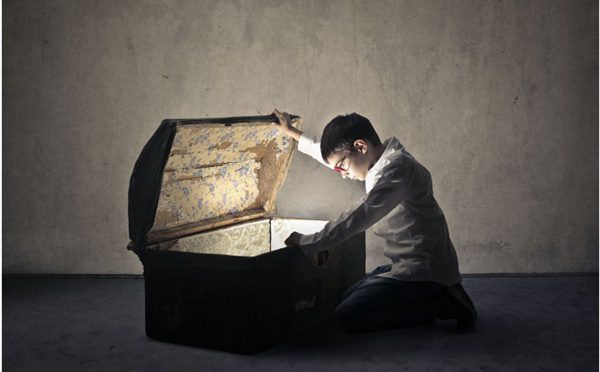The Futility of Violence Against Prejudice
20 years after the Battle of Hogwarts, the wizarding world is ripe for a nonviolent revolution.
Though the epic final battle of the Second Wizarding War culminated in the death of the Dark Lord, it did not put a definitive end to the ideologies that fueled his reign of terror. An underlying prejudice against muggles – manifesting more often as indifference than as hostility – permeates the structure of the wizarding world. This prejudice underlies the racism of pure-blood supremacists against muggle-borns, squibs, and those who otherwise lack pure wizarding blood, but it’s nurtured by the near-universal perception of magical superiority that even the most fair-minded and compassionate witches and wizards exhibit. As long as this prejudice remains, it cultivates pure-blood supremacy and incubates seeds of future conflict.
Violent force may have overpowered the Death Eaters, but not the prejudices that guided them. Because violence can never do that. Violence may kill those who wield the powers of hate and fear, but ultimately it fuels those same powers. Only nonviolent, revolutionary love can bring true peace to the wizarding world by dismantling the barriers of ignorance and prejudice that arbitrarily divide pure-bloods, half-bloods and muggle-borns. Such a love reaches beyond barriers to cultivate bridges of understanding and relationship, without which prejudice festers and spreads. Ultimately, this love must beyond the margins of the wizarding world, into the world which, despite producing wizards and witches, has been shunned by wizarding kind.
Only love can transform the bigotry and ignorance of a segregated society into a community that welcomes all, where no one is marginalized and everyone is empowered to be their most authentic selves. So, 20 years after the Battle of Hogwarts, the time has come for a nonviolent revolution to reach out, educate, connect, and ultimately dismantle the Statute of Secrecy veiling the Wizarding World from muggles.
Nonviolent Love In the Battle of Hogwarts
As we honor the fallen and surviving heroes of the Battle of Hogwarts, it may seem strange or naïve or even ungrateful to invoke the power of nonviolence. So I want to be careful not to deny the love of all of who took up their wands in defense of their school, their loved ones, their freedom and dignity. Love compelled them to risk their lives rather than submit to the tyranny of pure-blood supremacy and the exploitation, torture and death it would mean for muggles, muggle-borns, squibs, and all who refused to allegiance to Voldemort.
The fact that love compels people to battle is undeniable. But this love for kin and kind is mixed with a conviction that some people are beyond all hope; some must be killed for others to live. Those who fight deny the further power of love to redeem and reconcile. Violence can be wielded in the name of love and by people guided in love, and yet the fullness of love is found in the rejection of violence and the choice instead for compassion, mercy, and connection.
Even as we recall the bloodshed and carnage of the Battle of Hogwarts, it behooves us to remember that Harry Potter’s triumph over Lord Voldemort was accomplished by pure love uncontaminated by violence, love in all of its full, redemptive power. Harry was blessed with a love that builds identity not by isolating the self above others but by connecting in compassion to others, so that it is unhindered by fear of self-preservation, willing to give everything and risk even death to give others life. It was this love that most distinguished Harry from Voldemort, whose very name, meaning “flight from death,”testifies to his desire to preserve his own life above all else. Voldemort refused connection to anyone, mutilating his soul and destroying his ability to love. By contrast, Harry’s love rendered him so unbound by fear of death that he willingly gave himself over to it on behalf of others and robbed it of its power. He returns from Voldemort’s killing curse alive and renders Voldemort’s power useless against his loved ones. Voldemort ultimately dies by his own rebounding curse when Harry raises his wand to disarm him. Along with the power of love, the self-defeating nature of violence is given powerful testimony in Voldemort’s demise.
And the love Harry wields is not merely his alone. Love flows through and connects the world, binding us even with those whom we call our enemies. It does not reach Voldemort because he cuts himself off from it, but it reaches through the prejudice and hatred of other characters, ultimately in service to Harry’s protection and thereby his mission to save the wizarding world. While the love of Harry’s friends and family give him the courage and character to face Voldemort, even those who don’t love Harry himself give love to others that Harry is able to channel in Voldemort’s defeat. For example, though the love of Harry’s mother Lily protects baby Harry from death, it is Severus Snape’s love for Lily that imbues her death with salvific powers. Even Narcissa Malfoy’s love for Draco plays a role in saving Harry’s life. Love’s ability to protect and redeem not only immediately but across networks of humanity is stunningly portrayed in this final battle.
Love and the Abolition of the Statute of Secrecy
Thus the Battle of Hogwarts testifies to the power of love beyond all violent force, the only power capable of overcoming the power of death. It is time to take the lessons learned from the triumph of love a step further. Love ultimately prevails not by defeating enemies but by transforming enmity itself. And love has the power to transform the prejudices that permeate the wizarding world when it is used not to battle enemies of flesh and blood, but to break through the limits of one’s own heart and mind, reach outward, and foster relationship.
The stigma against muggle-borns in the wizarding world is ultimately the stigma against muggles themselves. Until that stigma is acknowledged, it will undermine the peace that the Battle of Hogwarts fought so hard to achieve. Even the most well-meaning witches and wizards who have no or limited connection to the muggle world do not and cannot know what they are missing. Arthur Weasley, for example, has an affinity for muggles, but for all his affection has very little understanding of their world. Meanwhile, muggle-borns are forced to live in two worlds, unable to share their knowledge of the wizarding world with their families and, from the look of it, not encouraged to share the muggle world with their wizarding friends (judging by the general ignorance of the wizarding world toward muggles). And squibs must chose to live in a wizarding world that does not accommodate their lack of magic, or in a muggle world that doesn’t acknowledge their roots. Laws that preclude relationship undermine love. It’s time to let love transform the underlying lie at the heart of the wizarding world – that lie that wizards can be at peace among themselves if muggles are excluded. Peace built on exclusion is always temporary and incomplete.
Nonviolent love saved the wizarding world from tyranny. The next step for love is to nurture inclusion by working toward the abolition of the Statute of Secrecy, transforming two worlds isolated by ignorance into one community acknowledging and celebrating diversity. It would start with education, by admitting squibs and perhaps holding one or-two year transfer programs for non-magical siblings of muggle-borns to wizarding schools. It would mandate Muggle Studies and also courses in Magical Diversity and Cooperation. It would foster friendships across magical divides to ease the transition. And through friendship, it would nurture the value of real understanding and respect for the differences and gifts of people with differing abilities. Wizards would come to appreciate muggle technology and innovation while muggles would learn to appreciate the art and subtlety of spells and potions.
Parallels Between The Prejudices of The Wizarding and Muggle Worlds
Through a deeper study of the muggle world, wizards and witches would also come to recognize that muggles have issues of prejudice and marginalization and non-accommodation that closely resemble their own. Muggles continue to divide themselves – not by magic but by melanin. White supremacy parallels pure-blood supremacy. And like the wizards who understand the equal value of muggles but still hold unconscious biases due to lack of relationships, even well-meaning white muggles who understand that race is a social construct hold prejudices because their societies remain racially segregated and the fabricated stigma against dark skin so deeply penetrates their world. Wizards and witches who study muggles may recognize other parallels as well. Just as squibs are born to the wizarding world with unique gifts but a magical disability, so certain muggles are born with different physical and mental abilities. Witches and wizards may see that the muggle world does not always do enough to accommodate these abilities, and that lens may serve as a mirror to help them consider the accommodations or lack thereof in their own world for squibs.
For many witches and wizards, the prejudices of the muggle world will come as no surprise. Many will no doubt recall the hostility of muggles toward them before the statute was implemented. The practice of witch-burning (though completely pointless) was one of many ways muggles showed violent, deadly intolerance toward differences of belief, ideology, or practice, deadly intolerance that continues to this day. But segregation and isolation perpetuate rather than dissipate prejudice. Failure to recognize the parallels of muggle prejudices in the wizarding world and continuing to foster prejudice through excluding muggles will lead to more cycles of fear, isolation, and violence. The only way to break these cycles is through relationship that builds understanding, empathy, and community.
Conclusion
A nonviolent revolution to overturn the Statute of Secrecy is not a panacea or the beginning of a utopia. It is bound to be met with pushback from those who want to uphold the status quo, and some may attempt to coopt such a movement to exploit or enslave muggles (as has happened before). But a movement to build connections and understanding is the best way to heal prejudices and hostilities. There is no true peace without relationship, and a community living in deliberate exclusion of others cannot be fully at peace.
20 years after the Battle of Hogwarts, it is time to recognize that the full power of the force that ultimately defeated Lord Voldemort – a force not of wands or spells but of human connection and vulnerability. It’s time to dare to dream where that force may take wizarding kind next. It’s time to overturn the Statute of Secrecy and live into the most powerful magic of all, a magic that muggles and squibs share with witches and wizards: the power of love.












